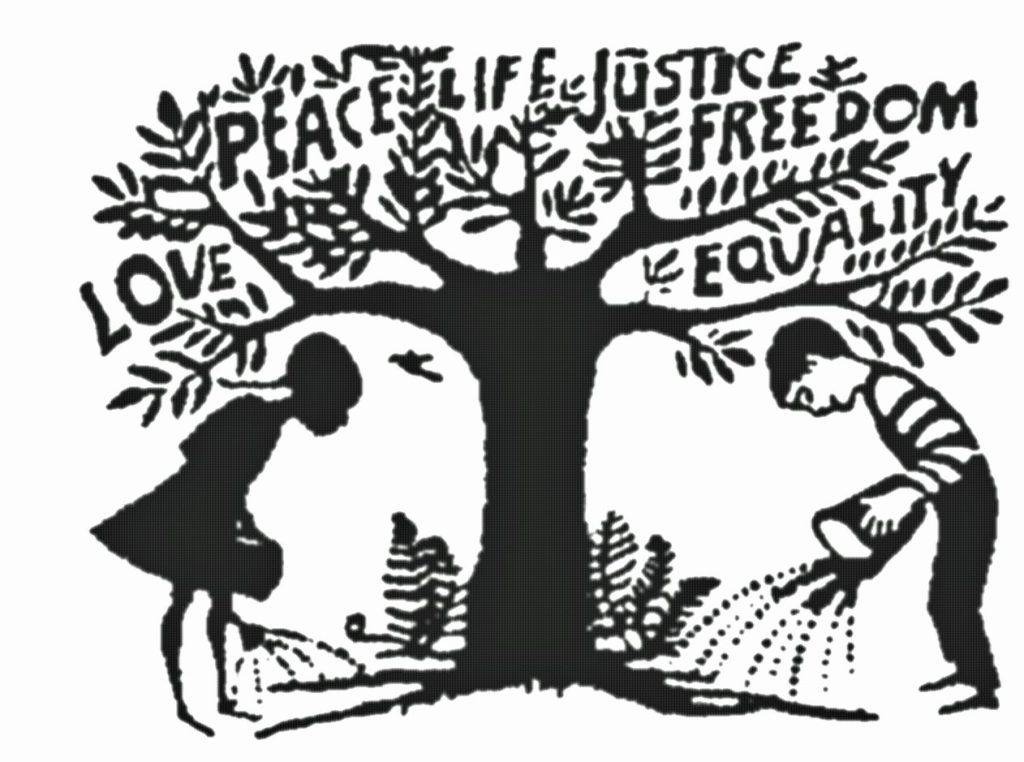Ignorance May Be Bliss…But Ignoring Won’t Be
Although our three readings today offer a strong theme of perseverance, there is a deeper and more important message coming through. We understand it in the First Reading only if we remember who Moses is. Revisit the Transfiguration passage in the Gospels.
Moses is the LAW giver. Therefore, when his arm is raised it indicates the Rule of LAW is strong: perhaps that is why we have the English expression: “the long/strong arm of the law.”
Conversely, when the arms of Moses fall, the Israelites start losing the battle. This indicates that when the LAW is not upheld, then society begins to suffer.
The Gospel passage complements the First Reading (not surprisingly!), by showing that even the poorest person in Society has a role in fighting to uphold the Rule of LAW.
By extension, that is a great challenge for each one of us. From the First Reading, it is you and I who are invited to help Moses hold up his arms.
Not by physically holding his arms, but by fighting to uphold the LAW wherever we are.
When we see injustice, but do little about it, we are not holding up the arm of Moses. In his address to Univ. of Notre Dame (USA) by US Attorney General, William Barr said (13-10-19):
“…declining religious values and the loss of the “traditional moral order” is causing many of society’s ills. … because of a ‘moral upheaval’ there has been an increase in drug use, children born out of wedlock, and people being alienated. The campaign to destroy the traditional moral order has coincided and, I believe, has brought with it immense suffering and misery. And yet the forces of secularism, ignoring these tragic results, press on with even greater militancy.”
What can we do? Most of us are not in a position to change culture.
But each of us in our own way can keep the truth alive. The LAW that Moses represents is not so much the Taxation, Road or Criminal Laws of a country, but the LAW of Life: of goodness.
Two years ago I was given a book called: POST TRUTH – the new war on truth and how to fight back, by Matthew D’Ancona. It proposes that people no longer wants to hear the hard Truths about our world. What we prefer to hear – and this is why we buy newspapers – is emotionally pleasing stories: news that makes us feel good (and I don’t have to do anything!).
So, I propose a question for us today: where are we at? Are we ready to hear the truth? First of all about ourselves and then our society?
Secondly, what kind of society do we want tomorrow? Because unless we reflect about it, we will not know how to create it.
The Unjust Judge in the Gospel should be a great symbol for us: it’s not important that we enjoy giving justice to others, but that we recognise this: unless we provide justice for others they will “worry me to death!” Of course, doing it with a good spirit will also make us joyful!
In the Christian context, justice for the poor is the basis of society: especially the widow, the orphan and the stranger. But why the poor?
I believe when we care for the poor we also give hope to everyone who is not poor. No one need fear being “left out.” If our community cares for those least in it, then I’m also OK.
Finally, the battle against evil does not have to be difficult: we just need to be united to speaking the truth: this is one of the lessons from the young men holding up the arms of Moses.
In America at the moment, small groups of Catholics are mobilising to protect the Truth. One of them is called CATHOLIC VOTE. Encouraging Catholics to register and vote.
Perhaps some of the groups fighting for Justice can be labelled “right-wing” or “ultra-conservative”. Perhaps their approach is not perfect. But, upon reflection, there is something noble and good in their desire to unite like-minded Christians for the good of society.
I invite each of us to look around our Society and try to connect with those who are doing small actions that help the poor (with their many faces), or challenge the secular society that focuses on pleasure rather than goodness. Recently, I re-connected with a former mentor in Perth who helps run a “Spirit of the Streets Choir:” provides an environment where people from all walks of life and all social backgrounds can come together in song and friendship. The Choir provides an opportunity for people who experience social exclusion or disadvantage to participate as active members of a performing choir in a safe, welcoming and non-judgmental environment. Through the activities of the choir, we aim to help break down the barriers and perceptions that cause isolation and marginalisation (see Facebook page).
What can we do to create a better tomorrow? Because doing nothing will destroy our tomorrow.
By Gerard Conlan, OMI



